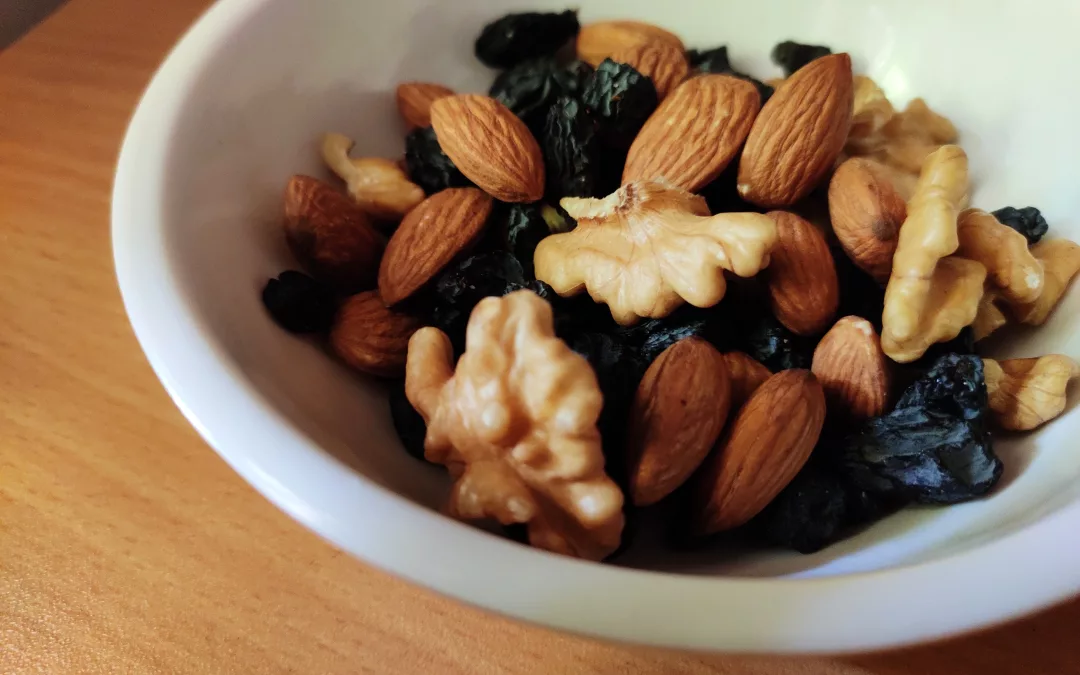Written by Kimberley Gittens, RD on behalf of Rachel McBryan, RD
Water-soluble vitamins are essential nutrients that are required for many bodily functions. These vitamins cannot be stored in the body, so they must be consumed regularly through food or supplements.
The most common water-soluble vitamins are vitamin C and the B vitamins, which include thiamin, riboflavin, niacin, pantothenic acid, pyridoxine, biotin, folate, and cobalamin. This post discusses the importance of water-soluble vitamins, their functions in the body, and the best food sources for obtaining them!
Vitamin B1 (Thiamin)
Vitamin B1, commonly known as thiamin, was the first of six B vitamins to be discovered. Some people refer to thiamin as a “workhorse” vitamin. It is essential for the breakdown of carbohydrates and the conversion of glucose into energy required for growth, development, and the function of many cells throughout our bodies. Thiamin also assists with the transmission of nerve signals throughout the body and helps to prevent complications in many organs and tissues, including the intestines, heart, and brain.
A deficiency in thiamin can lead to a variety of health problems, including nerve damage and muscle weakness.
Thiamin-Rich Food
Thiamin can be found in a variety of foods. Some foods naturally contain thiamin, while other foods are enriched with thiamin to increase our nutrient intake and ensure we meet the recommendations outlined by Health Canada. Some of the most thiamin-rich foods include,
-
- Pork
- Whole wheat bread
- Long-grain white rice
- Fortified cereals
- Acorn squash
- Trout
- Tuna
- Mussels
- Orange juice (from concentrate)

Vitamin B2 (Riboflavin)
Riboflavin plays many important roles in the body and may be used in the treatment of some conditions, including migraines. It is a key element of two major enzymes that are required for many systems, including energy production, cellular function, growth and development, and metabolism of fats and drugs. Additionally, it is required for the conversion of vitamin B6 into a coenzyme, maintenance of homocysteine levels in the blood, and absorption and activation of other micronutrients.
Health Canada recommends individuals over the age of 14 and healthy adults should consume between 1.1 and 1.3 mg of riboflavin each day. Although riboflavin deficiency is rare, some groups of individuals are more at risk for riboflavin deficiency than others. Some at risk groups include,
Vegans and People Avoiding Dairy Products
A significant amount of our riboflavin intake comes from meat and dairy sources. Consequently, vegans and individuals avoiding dairy products are at an increased risk for riboflavin deficiency.
Vegetarian Athletes
Limited sources of riboflavin in a vegetarian diet, combined with the increased need for riboflavin in athletes, places vegetarian athletes at an increased risk for deficiency.
People with Riboflavin Transporter Deficiency
Individuals with a rare riboflavin transporter deficiency cannot adequately absorb riboflavin from their diet, leading to increased risk of deficiency.
Pregnant and Lactating People
Pregnant and lactating women who consume little to no meat or dairy are at an increased risk of developing riboflavin deficiency. Riboflavin deficiency during pregnancy is associated with adverse effects in both women and their infants, including increase risk of preeclampsia and certain birth defects.
Riboflavin-Rich Foods
As a water-soluble vitamins, riboflavin can be found in many foods. Rich sources of riboflavin include,
-
- Fish, meat, and poultry
- Such as turkey, chicken, beef, kidneys, and liver
- Eggs
- Dairy products
- Asparagus
- Artichokes
- Avocados
- Cayenne
- Fortified cereals
- Lima beans, navy beans, and peas
- Mushrooms
- Nuts
- Pumpkins
- Sweet potatoes
- Cruciferous vegetables,
- Such as broccoli, Brussels sprouts, spinach, and watercress
- Whole-grain breads, enriched breads, and wheat bran
- Fish, meat, and poultry

Vitamin B3 (Niacin)
Vitamin B3, also known as niacin, plays an important role in many bodily functions. One of the key functions of niacin is to assist in the conversion of food into energy, which is essential for our bodies to function properly. Additionally, niacin is known to support the health of our skin, immune system, and digestive system, making it a vital part of our diet. In fact, vitamin B3 is required for over 400 different enzymes to complete their reactions. These enzymes are responsible for many important processes in our bodies, including DNA repair, hormone synthesis, and energy production. Without enough niacin, our bodies cannot perform these functions efficiently, which can lead to a range of health problems.
Niacin-Rich Foods
Like many other B vitamins, vitamin B9 is naturally found in many foods. It is also added to other foods to increase their nutritional value and ensure we are getting the vitamins and minerals that our bodies need. Some niacin-rich foods include,
-
- Chicken breasts
- Salmon
- Pork tenderloin
- Ground beef
- Brown rice
- Peanuts
- Fortified breakfast cereal
- Sunflower seeds
- Pumpkin seeds
- Soy milk

Vitamin B5 (Pantothenic Acid)
Pantothenic acid, also known as vitamin B5, is necessary for the production of coenzyme A. Coenzyme A plays an important role in metabolic reactions and is essential for the metabolism of carbohydrates, fats, and proteins. It is also necessary for the synthesis of cholesterol, hormones, and neurotransmitters.
Pantothenic acid is also necessary for the synthesis of fatty acids, which are important for the health of our skin, hair, and nails, and play a key role in regulating inflammation throughout your the body.
In addition to its role in metabolism and fatty acid synthesis, pantothenic acid has been studied for its potential benefits in reducing acne, improving wound healing, and reducing the risk of cardiovascular disease. However, more research is needed to confirm these benefits.
Support Your Health with a Registered Dietitian
Are you interested in learning more about how water-soluble vitamins can benefit your health? Book a FREE discovery call with a registered dietitian today to learn more!
Vitamin B5-Rich Foods
Pantothenic acid can be found in a variety of foods including,
-
- Beef
- Mushrooms
- Avocados
- Dairy Milk
- Brown rice
- Oats
- Potatoes
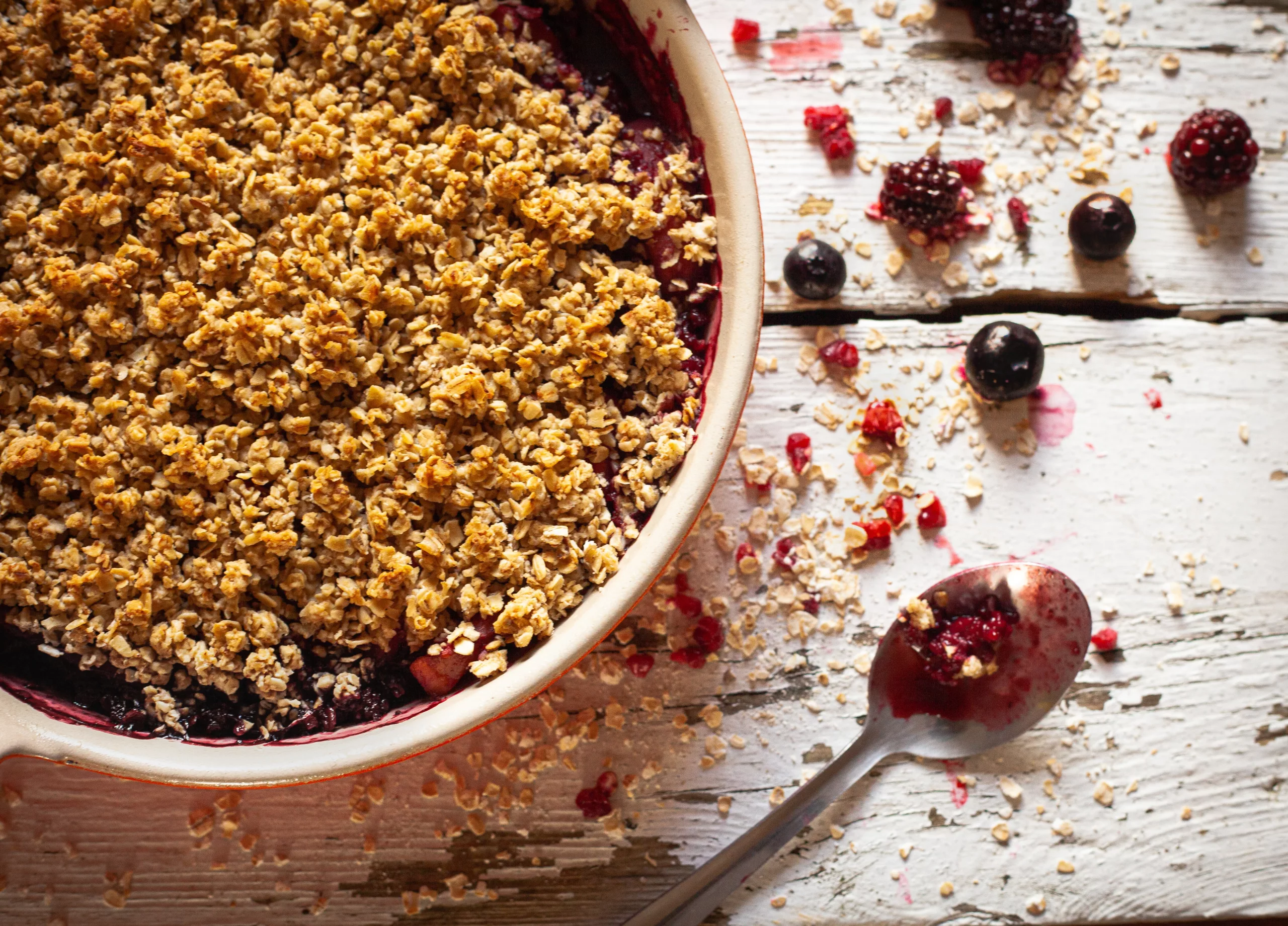
Vitamin B6 (Pyridoxine)
Pyridoxine not only aids in the metabolism of amino acids but also supports the formation of neurotransmitters that are essential for the proper functioning of the nervous system. Additionally, it is critical for the synthesis of hemoglobin, the protein in red blood cells that carries oxygen throughout the body. Moreover, it plays a crucial role in regulating homocysteine levels in the blood, which is important for maintaining cardiovascular health.
Pyridoxine-Rich Foods
To ensure that you are getting enough pyridoxine in your diet, it is recommended to consume foods that are rich in this vitamin. Some good sources of pyridoxine include,
-
- Chickpeas
- Papaya
- Cantaloupe
- Salmon
- Tuna
- Oranges

Vitamin B7 (Biotin)
Vitamin B7, also known as biotin is necessary for the metabolism of carbohydrates, fats, and amino acids. This vitamin plays an essential role in the production of glucose and fatty acids, which provide energy to the body. It also helps to break down amino acids to be used as building block for proteins.
Biotin is involved in the regulation of gene expression and the maintenance of healthy hair, skin, and nails. It is known for its ability to strengthen hair and nails, prevent hair loss, and improve skin health. Biotin is often included in beauty supplements to improve the appearance of hair, skin, and nails. However, it is important to note that more research is needed to confirm these benefits.
Biotin deficiency is rare, but it can cause symptoms such as hair loss, skin rash, and neurological problems. Biotin deficiency can occur in people who consume raw egg whites or who have a digestive disorder that affects the absorption of biotin. Pregnant women may also be at risk of biotin deficiency, as the demand for biotin increases during pregnancy.
Biotin-Rich Foods
-
- Egg yolks
- Liver
- Nuts (almonds, peanuts, walnuts)
- Seeds (chia, sunflower, pumpkin)
- Sweet potatoes
- Spinach
- Broccoli
- Cauliflower
- Whole grains
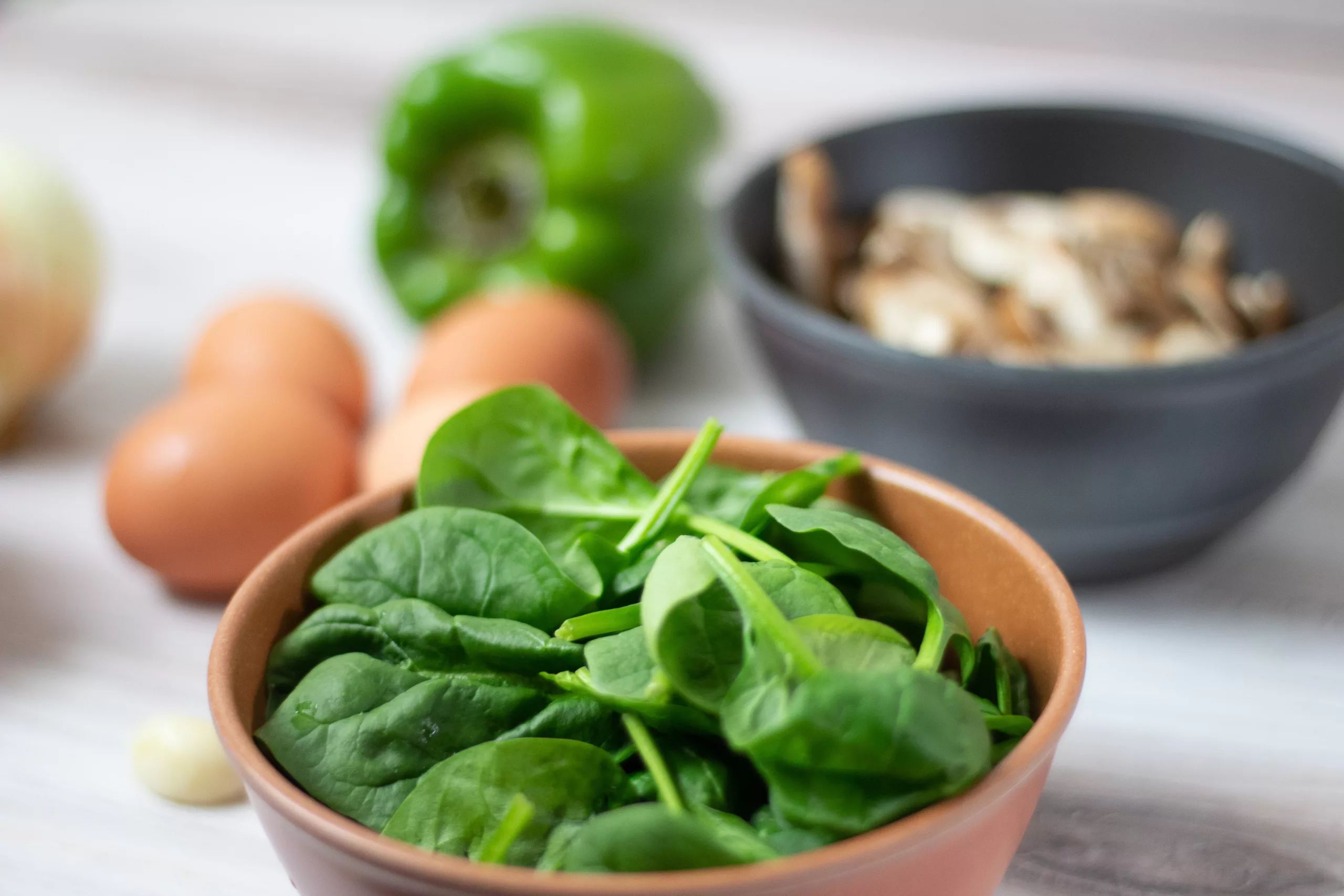
Vitamin B9 (Folate)
Vitamin B9, also known as folate, is known for its role in the construction of our DNA and RNA, as well as the breakdown of amino acids. However, its importance goes beyond this.
Folate is necessary for the proper division and replication of cells, especially during fetal development. It is especially crucial for the development of our spinal cord. In addition, folate helps to prevent birth defects, including neural tube defects.
It also plays a role in maintaining good health throughout our lives. Folate helps to produce red and white blood cells, which are important for carrying oxygen and fighting infections, respectively. It also helps to convert carbohydrates into glucose, which is used as energy by our cells.
Folate-Rich Foods
We can find folate in many animal- and plant-based foods. It is also added to other foods to increase their nutritional value. Some of the top folate-rich foods are,
-
- Spinach
- Fortified breakfast cereals
- Asparagus
- Brussel sprouts
- Romaine lettuce
- Avocado
- Broccoli
- Green peas

Vitamin B12 (Cobalamin)
Vitamin B12 is often called cobalamin due to the cobalt found at the centre of the vitamin’s structure. There are four different forms of the vitamin,
-
- Cyanocobalamin
- Methylcobalamin
- Adenosylcobalamin
- Hydroxocobalamin
Vitamin B12 is an essential nutrient for the human body, playing a crucial role in the development and upkeep of the central nervous system. It is also required for the formation of red blood cells, and DNA synthesis, which is important for cell growth and reproduction.
Vitamin B12 has been shown to help folate in preventing a particular type of anemia, known as megaloblastic anemia, which can cause fatigue, weakness, and shortness of breath.
Additionally, cobalamin, the active form of Vitamin B12, is required for the function of two important enzymes with countless roles throughout the body, including the metabolism of fatty acids, the synthesis of neurotransmitters, and the maintenance of healthy bones.
In fact, studies have shown that Vitamin B12 deficiency can lead to a variety of health problems, such as anemia, neurological disorders, and even increased risk of heart disease. Therefore, it is important to ensure that one’s diet contains sufficient amounts of Vitamin B12. Health Canada recommends healthy individuals over the age of 14 consume 2.4 mcg (micrograms) of vitamin B12 each day. Additionally, they recommend pregnant and lactating women and teens consume between 2.6 to 2.8 mcg per day.
Support Your Health with a Registered Dietitian
Are you interested in learning more about how water-soluble vitamins can benefit your health? Book a FREE discovery call with a registered dietitian today to learn more!
Vitamin B12-Rich Foods
Many foods contain vitamin B12, which is why deficiency is very rare. Some foods, particularly animal-based foods such as meats and dairy products, naturally contain cobalamin. Other foods are fortified with vitamin B12. This means vitamin B12 is added to these foods during processing to increase their nutrient content.
Some of the top sources of vitamin B12 include,
-
- Beef liver
- Bluefin tuna
- Atlantic salmon
- Fortified nutritional yeast
- Plain yogurt
- Milk
- Breakfast cereals
- Bananas
- Strawberries
- Kidney beans
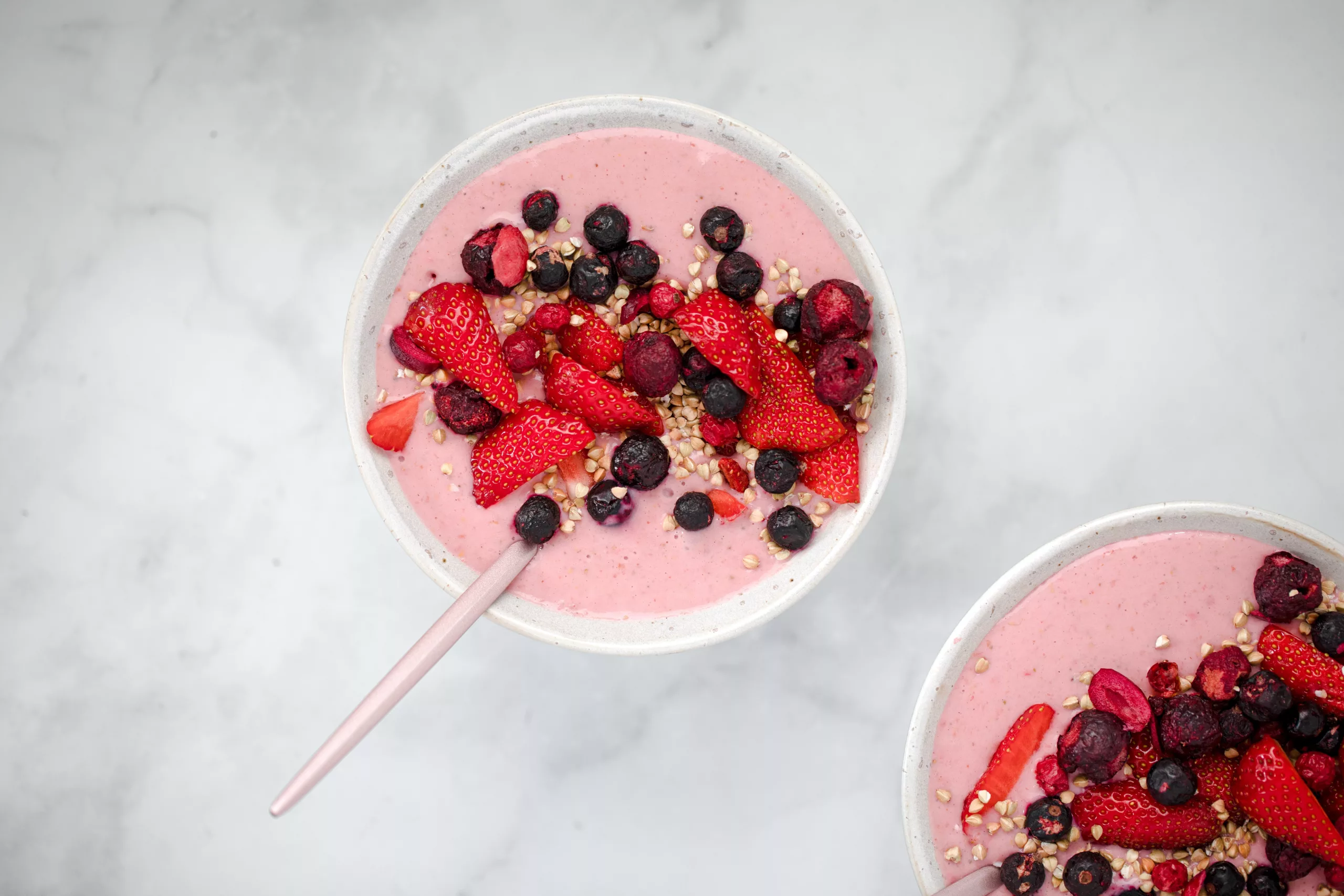
Vitamin C
At some point in your life, someone has probably suggested that you take vitamin C to fend off a cold or prevent you from getting one in the first place. But what is this miracle vitamin that protects us from all these germs?
Vitamin C is used in the synthesis of many compounds, including some amino acids, neurotransmitters and proteins, such as collagen. Vitamin C is also powerful antioxidant (similar to vitamin E) that helps protect our bodies against damage from free radicals in the environment, and regenerates other antioxidants. Additionally, Vitamin C assists in the absorption of iron from plant-based meals and supports your immune system.
Did you know that most animals can synthesize their own vitamin C?
Humans are one of the few that cannot. This means we need to get it from our diet.
Health Canada recommends healthy adults should consume between 75 to 90 milligrams each day. Additionally, Health Canada provides a range of recommended vitamin C intakes for individuals under the age of 18. Some people such as smokers may need some extra vitamin C in their diet. Health Canada also encourages smokers to consume an additional 35 milligrams daily. You can find a complete list of recommended intakes on Health Canada’s website.
Vitamin C-Rich Foods
This immune-supporting vitamin can be found in many foods. Especially in fruits and vegetables. Some top sources include,
-
- Broccoli
- Kiwi
- Strawberries
- Guava
- Papaya
- Oranges
- Grapefruit
- Potatoes
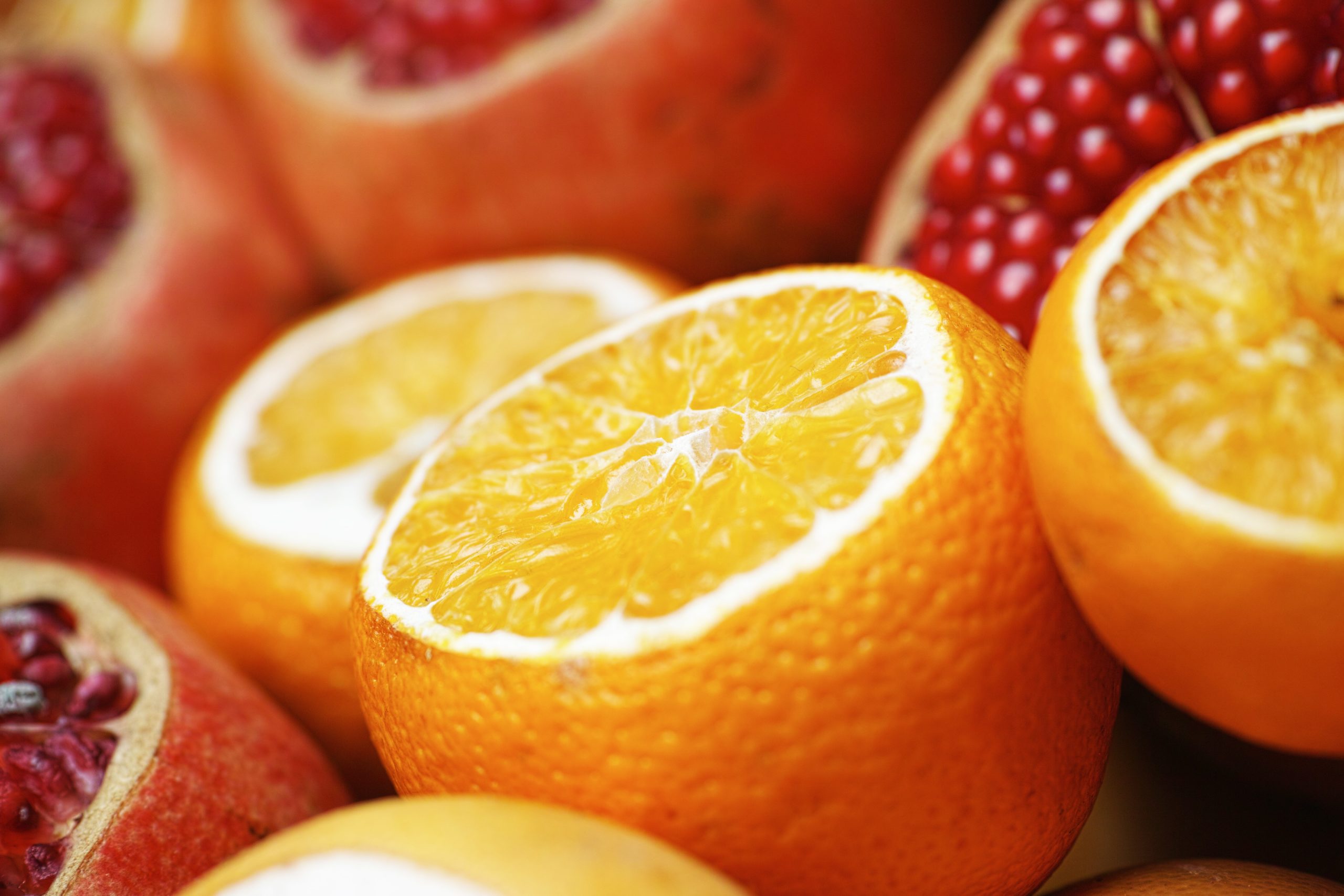
Meet Your Nutritional Needs
Working with a Registered Dietitian will ensure that you’re meeting all of your nutrient needs with a plant-based diet. Book a FREE discovery call to get started!
References
Kimberley is a Registered Dietitian, licensed in Ontario. She helps clients across Ontario control their blood sugars and reduce their risk of chronic conditions.

